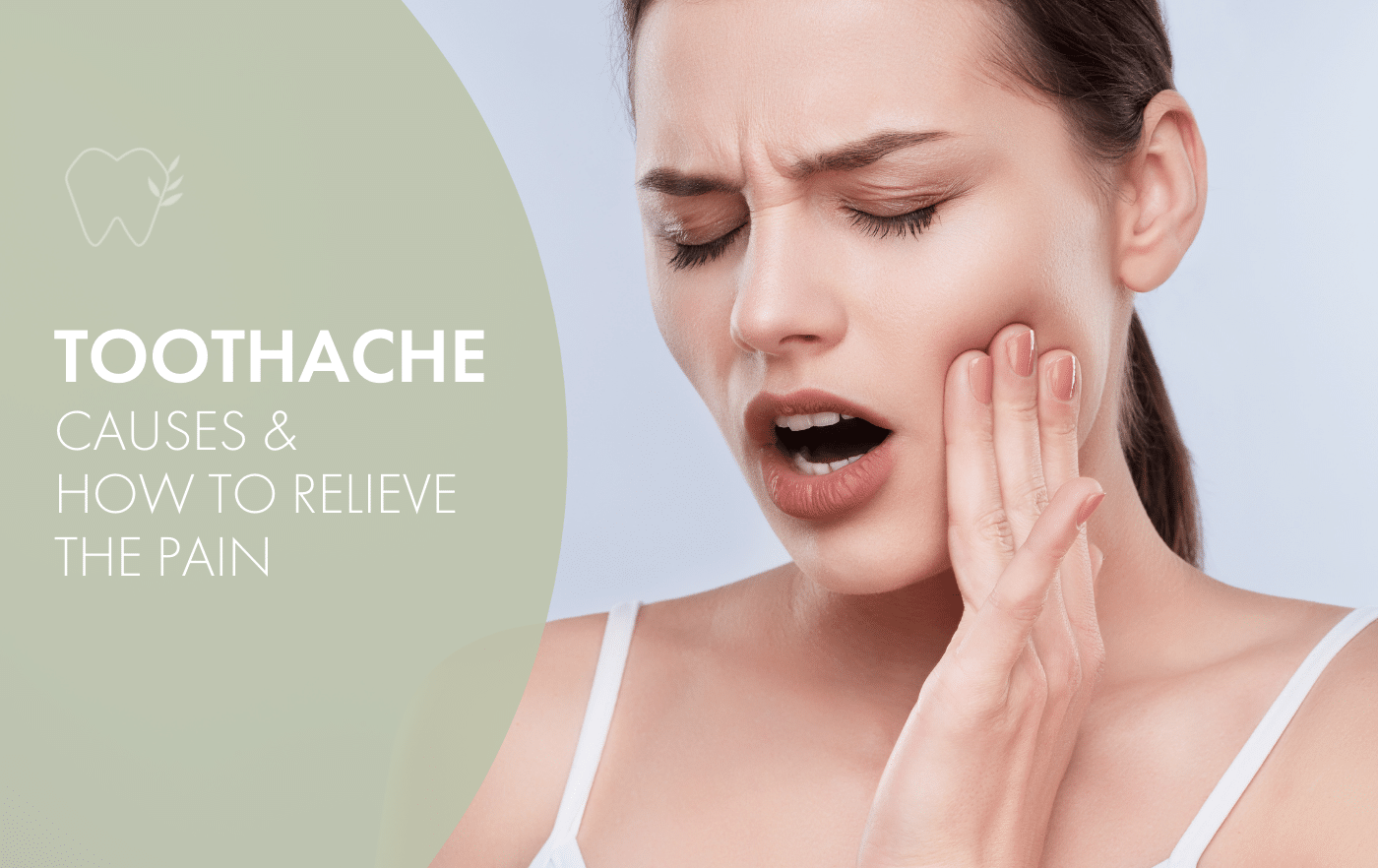
Toothache: Causes and How to Relieve the Pain
Do you feel a dull, pulsating pain in your jaw? Does biting into food or chewing send a shockwaves through the side of your mouth? Do you feel a sharp shooting pain whenever you consume a nice, cold beverage? Whether its sharp and sudden, or dull and constant, a dental tooth ache is hard to ignore! Sometimes a tooth ache may even also accompanied by headaches, ear aches, and swelling of the face and jaw.
A toothache can be devastating; you may lose sleep, become irritable, or have difficulty concentrating because of the excruciating pain. So, in today’s blogpost I want to share some of the common causes of toothache, and how you can relieve it. Continue reading to find out!
Causes of Toothache
There is no single cause of dental pain, and since toothache is usually a sign of a more severe problem, it’s crucial that you visit your dentist as soon as possible. Your dentist will diagnose the possible cause of pain and provide the most appropriate treatment.
Some of the most common causes of toothache include:
• Tooth decay
• Gum disease
• Tooth cavities and cracks
• Tooth trauma
• An abnormal bite
• Grinding teeth (bruxism)
• Broken or compromised old fillings
• Tooth eruption (in the case of babies and school-age children)
It may come as a surprise, but in some cases, what may feel like a painful toothache may actually be triggered by a cause that is totally unrelated to your teeth. Conditions like tense facial muscles, joint disorders, and sinus or ear infections can also lead to the same discomfort experienced with a toothache due to involvement of shared neural pathways. That’s why it’s essential to get examined by a qualified dental professional to determine the real cause of your dental pain and not always assume that it’s because of poor oral health.
How to Manage Dental Pain
This is one of the most popular questions that get asked when someone has a toothache! For starters, you should be making an appointment to see a dentist as soon as possible when you start feeling pain in and around your mouth. There are, however, simple home remedies that you can use to alleviate the pain before you see a dentist.
As your first line of treatment, try any of the following:
- Dissolve half a teaspoon of cooking salt in one cup of warm water. Gargle it for at least ten seconds, then spit it out.
- Hold an ice pack or cold compress against your cheek to try numbing the pain. Take note not to apply the ice directly to the tooth, as dental pain often intensifies sensitivity to temperature.
- Take a painkiller such as Panadol or Neurofen to help relieve the pain. Remember only to swallow the painkillers and not apply them directly to the gums. This is because these pain medications contain acid that may burn the gum tissue.
How to Prevent Toothaches from Happening
If you have ever suffered the uncomfortable pain of a toothache, you know that it’s something you wouldn’t want to experience again. The good news is that you can reduce the occurrence of toothaches by practising good oral hygiene and having regular dental maintainence check-up appointments – we recommend at least every six months.
Here are some of the things you can do to reduce the chances of having a toothache.
- Brush your teeth thoroughly using fluoride toothpaste for at least two minutes, twice a day
- Floss daily
- Ensure the areas between your teeth are clean and plaque-free
- Limit consumption of sugary or acidic foods or ensure you drink water afterwards to reduce the risk of cavities
- Be careful not to grind or clench your teeth – sometimes this happens at night as you sleep without you even realising – we’ve seen a surge in bruxism (grinding) in recent years which has led to cracked or broken teeth
Can toothaches disappear on their own?
A toothache can be a warning of more serious dental or general health issues. Toothaches rarely go away on their own – but if you ignore it long enough for the pain to disappear, that is usually a sign that the nerve inside your tooth has died. The infection that caused the problem in the first place may still be present and continue to attack the surrounding tissues. Without treatment, the infection could seriously damage the jawbone, enter the bloodstream and cause systemic illness. That’s why you should visit your dentist as soon as you start feeling the toothache.
At The Grove Dental in Rouse Hill, we have skilled dentists who will perform a thorough examination to determine the cause of your dental pain and devise the best possible treatment solution. If you’re suffering from dental pain of any kind, don’t wait for the situation to get worse. Contact The Grove Dental and book an appointment to discuss your oral concerns.





